Commercial Pest Control
Rest Easy Pest Control | Servicing Long Island & NYC

Complete Commercial Pest Control from people who care.
Call us today at 1-888-927-9842 a FREE quote or to get more information on worry-free Rest Easy Pest Control for your businesses.
We Provide Pest Free Businesses
No matter what business you’re in, your future depends on a reputation for cleanliness. Pest control problems can be extremely costly, plus they can damage your image and even cause you to close for repairs. Wouldn’t you rather Rest Easy, confident that you have no commercial pest control worries?
When you choose Rest Easy Pest Control you know you’re getting the right working partner to ensure your facility is pest-free, all the time. Whether you are a building manager or a restaurant owner, we can help. We’re locally owned, providing commercial pest control throughout New York, New Jersey & Long Island.
This includes:
We’ll work with you to design the most efficient and cost-effective commercial pest control plan, or call us for a one-time service.
We offer the flexibility of regular scheduling, 24/7 to meet your needs. And we use only the latest, most effective techniques and products.
We promise you’ll get that Rest Easy Feeling, thanks to:
- The local, knowledgeable staff you can trust
- More than 20 years experience
- Superior service you can rely on
- Competitive prices
With the right commercial pest control, your customers and employees won’t have to cope with bed bugs, rats, and mice, cockroaches or any other pest.
You’ll never have to worry about complying with government regulations and inspections. And your facility will be fully protected from potentially extensive damage to structures, wiring, plumbing or HVAC ducting, caused by rodents or termites.
You can Rest Easy.
This groundbreaking process emphasizes long-term pest prevention over immediate pest extermination. It confronts the underlying reasons for the presence of pests in the vicinity and prevents future infestations by minimizing risks to the environment as well as the people. Instead of eliminating pests currently inhabiting your space, employing IPM helps observe environmental factors which influence the pests and their ability to survive. This insight is then used to orchestrate conditions that don’t favor the pests and to employ management practices best suited to control these pests.
Since IPM is derived from cohesive scientific research, the methods it employs are also scientific and grouped as follows:
- Biological control
This employs natural nemeses of pests to control them and the damage they’ve caused. Depending on the pests being dealt with, pathogens, parasites, and predators are used accordingly.
- Cultural control
This employs practices to reduce pest reproduction, establishment, and survival.
- Physical and Mechanical controls
These practices directly terminate a pest or make their environment incompatible for survival. Physical control may include setting up barriers like screens to prevent insects from getting in. On the other hand, mechanical control involves setting up traps to catch pests and kill them.
- Chemical control
As the name suggests, this employs pesticides to kill pests. However, selective pesticides are employed in IPM. This selection lays extreme emphasis on their probable harm to the environment, people, and non-target organisms.
Although our first thought is to get the pests exterminated, preventive pest control is an integral part of pest extermination.
- Sealing areas
Areas where pests have started housing are carefully inspected for any crevices, holes and other factors serving as the doorway to pests. These are then sealed to prevent further increase in pests. Furthermore, pipes and faucets may also be inspected and fixed if they’re leaking since water attracts pests.
- Cleaning and de-cluttering
Offices are often cluttered with papers, files, stationery and other plastics, haphazardly lying around without any organization. Moreover, rooms with computers are also often not cleaned in fear of dust harming the computers. This is where vacuuming and organizing the clutter comes into practice. Since pests are most likely to house themselves in such an environment, it is important for pest control to keep the rooms clean and organized.
- Food storage
Food lying in the open obviously attracts pests. It is also one of the reasons why pest infestation usually occurs in restaurants. To prevent a more serious pest infestation, food should be stored in refrigerators and in containers, dirty dishes should be washed immediately, and groceries should be carefully inspected for any pests in the packaging. Moreover, any spilled food or liquid should also be wiped and cleaned immediately. This goes not only for restaurants but for any offices with kitchens.
Other than this, pest controllers may also spray the infested areas with low-level odor products which are detrimental to pests but not for people, pets, and environment. They not only kill off pests but their enduring residual components ensure pest prevention for the future as well.
Food doesn’t just attract humans it also attracts pests. Ergo, above all other commercial areas, restaurants are generally more prone to pests. Pests in restaurants can be problematic since they may harm the stored food, get in the way of food preparation, be a nuisance to customers, potentially harm the reputation of the restaurant and even get it closed by the food authorities.
This rallies a call for pest controllers who will identify the pests, their hot spots and then take the necessary measures to control the pests in your restaurant. So when you call a pest controller, you can expect them to spend their time in the following areas for obvious reasons:
- Food storage area
- Dining and food preparation areas
- Floor Drains
- Trash Cans
The reason why organic pest management is so widely preferred is that it has low odor, is safe for children, pets, and people with asthma and allergies and is also friendly for the environment. Generally, organic pest management makes use of natural substances to repel and kill pests. These may include boric acid, mint, thyme and essential oils and many other substances that are detrimental for pests but safe for humans and the environment.
- Oil sprays
Dormant essential oils work best against pests. However, for these oil sprays to work, it is essential that they are sprayed directly over the pests or their eggs.
- Insecticidal soap
These contain unsaturated fatty acids which dissolve the cuticle of pests. They are highly effective against pests such as mites, whiteflies, aphids and some soft-bodied insects in addition to the softer nymph stages of certain hard-bodied pests. The effectiveness of this soap also relies on coming in direct contact with the pests, themselves.
- Sticky Traps
One of the most prominent organic pest control strategies, sticky traps are good for trapping and killing pests. Typically, yellow traps lure in whiteflies, midges, fungus gnats, fruit flies and others. Similarly, white traps, light blue traps, and red spheres also exist and lure in other types of pests.









